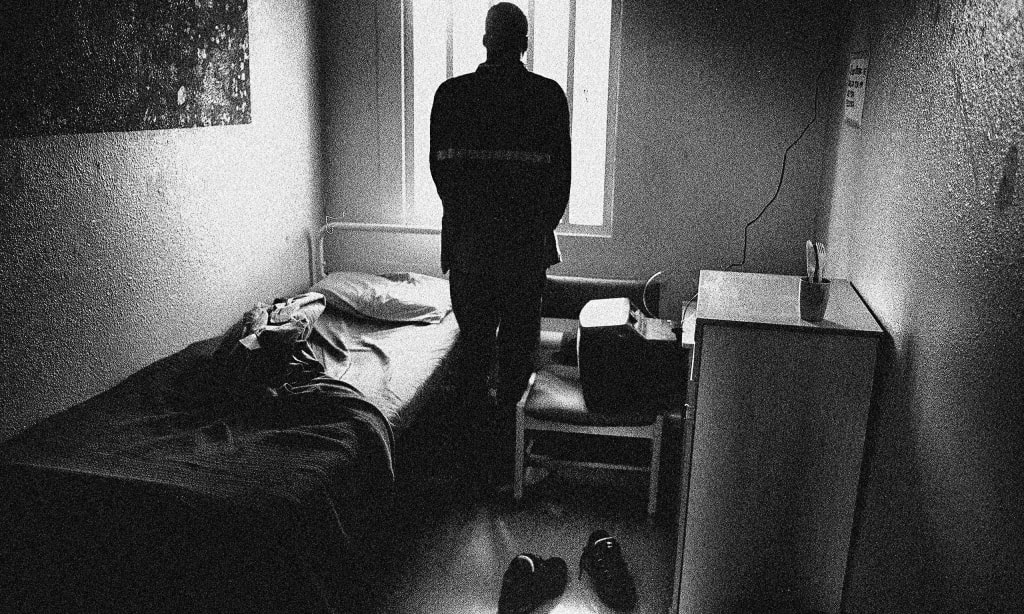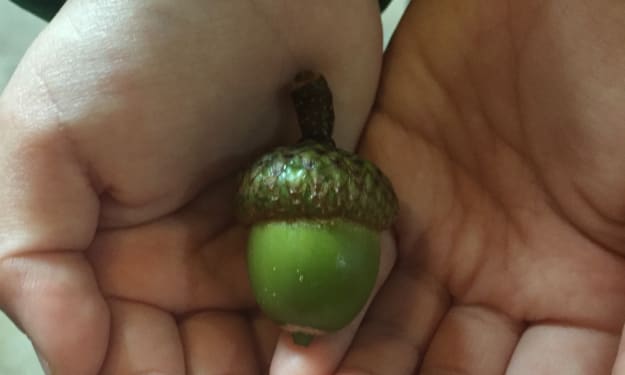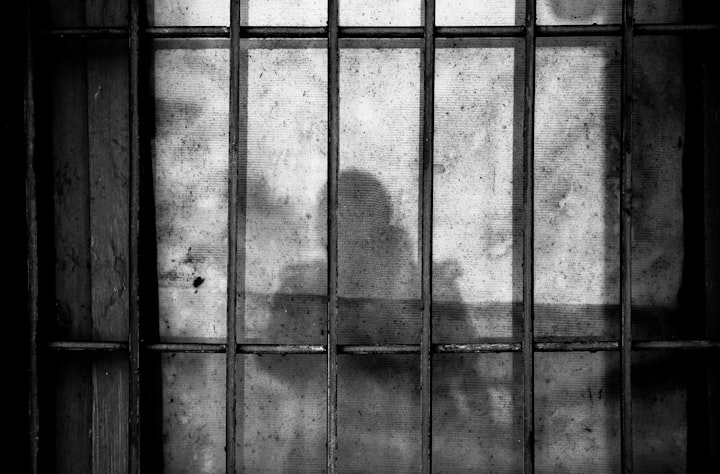Mental Health and Incarceration
One person's career working with mental health in incarceration and treatment facilities

I have been in the mental health field for fourteen years, and I have learned more about myself than I ever thought I would. My career does not change the world in significant ways. There are no celebrations, no parades, no capes. But we do have superpowers. They aren’t generally flashy, but we have the means to mend the broken pieces in people and enable them to be their own heroes. Each mental health facility I worked in grounded new perspectives and valuable lessons that have reformed how I approach the world.
The first facility I worked in was with the state’s most sexually violent predators, housed in a treatment facility on a remote island. The commute instilled in me time management. Ferries left on a very tight schedule, and being a moment too late for the ferry meant I would be hours late getting to work. The long hours taught me the value of napping when you can. There were many days I spent the twenty-minute ferry ride taking a nap or collecting my thoughts before stepping onto the island or getting in my car for the thirty to hour-long commute home. But the patients and staff taught me the most.
As a young woman working amongst predators, I became the fixation of a patient who challenged every barrier I set up. He went as far as to try to manipulate me, touch me, and blackmail me. I was thankful for the first encounter to have a friend who supported me and backed me up, acting as a big sister. But I was shunned by my other coworkers and even my supervisors. I was often stationed in “out of sight, out of mind” tasks and never had staff come to relieve me during the shift. On one particularly miserable rainy day, I was called into management’s office. The administrator informed me that I would be going back into training because my supervisors did not think I was handling myself well. I erupted into angry tears and spoke my unfiltered truth. She had not heard my side, was immediately infuriated at my mistreatment and told me I could return to my post. There would be no need for additional training. Shortly after that, I sat in an employee evaluation with my two supervisors about my poor work performance because of this patient. When they asked if I wanted to say anything, I had plenty to say. The once quiet and reserved employee they assumed I was showed unbridled anger at having no support. What they perceived as poor handling of a situation beyond my control was actually a reflection of their poor management skills.
This situation taught me to stand up for myself, despite how others may perceive my situation. To this day, I am not afraid to assert myself when I see people being mistreated and ensure those on my team know they have my support. Although this situation was soul-wrenching at first, it turned into a good memory. Because, shortly after my eruption on my supervisors, I started receiving more staff support and, one of those supervisors offered me a genuine apology for how he treated me. We became pretty decent friends as the years went on. And that administrator continued to give me support and praise for the next four and a half years I worked there.
The patients, on the other hand, taught me to look at things from new angles. Every patient on that island was convicted of sexual assault charges. Many of their stories were intensely disturbing. After a while, I stopped reading their intake information and merely focused on if I fit their victim’s profiles or not. Despite the reason they were there, I met many men who cared deeply for others. I watched as groups were formed and how they supported one another. I was moved by their support regarding issues with their peers and how that same courtesy was bestowed on me. Just like in many prison settings, I did not worry about patients messing with me, safe in the knowledge I had a handful of patients who would defend me in any instance. And when my uncle, who also worked there, passed, I was gifted with multiple cards, condolences, and stories from the patients.
By the time I left the facility, I felt blessed with how I had changed in those years: I had found my voice, mentored, and built incredible friendships. And I now know a fantastic recipe for mac and cheese and have a love for Raven’s Brew coffee from late-night conversations with patients.
Most importantly, I learned the actual value of “don’t judge a book by its cover.” I now practice looking at the many different sides of a situation or person before forming my own opinion. Many of those patients, despite terrible pasts, had genuine compassion, integrity, and humanity towards others. And many of those staff hid insidious, dark, and ruthless truths behind average-looking masks.
The second facility, and by far my favorite, was working with juveniles in a detention facility. When I started, I was tasked with working a unit for intakes and those in trouble. I developed a niche for problem-solving gang-related issues and identifying signs of detoxing. It was here I had a great conversation with a brilliant young man. Heavily involved in a gang, crime, and drugs, he had a game plan to become a successful businessman if he could leave that life behind. I watched the effects of meth use on another man, who was released and returned all within a month. I did not recognize him at first: he was half his original weight and bald. When I asked him what he did to get back into the facility, he gave me a shrug and a sheepish grin. “Meth,” was his explanation.
When I moved to a security position, I quickly learned the importance of strategy. I avoided potential gang wars by ensuring rival gang members were not in a confined space together. And, in the case of a young man with severe mental health and custodial assault issues, I learned the importance of working as a team to ensure safety. Avoiding having a VCR/DVD combo being chucked at my head, staff worked as a team to restrain the youth safely and have additional assistance to escort him back to his unit. My call on the situation was rewarded with praise, a promotion, and the respect of an ex-marine supervisor who seldomly showed interest to anyone.
Because of my constant work with staff in the acute mental health unit, I had several staff write letters of recommendation when I applied for a permanent position in that unit. I found a home in this unit. I adored all my staff and found a love for coming to work. I loved working with acute mental health youth. There was the young man who embraced his more feminine side and finding more happiness in “girlie” things. He taught me to be unapologetically me. There was the young man who taught me about Muslim practices and the other youth that asked me to teach him Wiccan principles. And, to this day, I remember the young man who was so dysregulated in solitary confinement that he threatened to hurt himself and anyone who entered his cell. One on one, we talked through his rage, and the man who paced and snarled, akin to a feral beast, faded into a crying child who craved validation.
These young men and staff were so supportive, especially when I became pregnant with my daughter. My team ensured I stayed in the booth for safety but always made sure I was well fed. And, on chocolate milk day, there were always two milks for me: “One for you, and one for baby,” they would always tell me. But I still think fondly of the youth who, despite being on the receiving end of a physical altercation, was more worried about my unborn daughter and me enduring too much stress. This event was mere days before my daughter would be born.
Moving onto the third facility from here would be a difficult decision. While I was offered the shift and days off I wanted at the new facility, leaving behind the juvenile facility was hard. I loved working with these young men. I saw so much potential in many of them; if only they could leave behind the lives of drugs, gangs, and crimes. I was shown how, despite charges they received, some of these men were incarcerated due to unsupportive or abusive living situations. Despite doing everything they can, I have seen parents have children who end up in the criminal justice system. And the parents, who may think they are doing everything, are actually causing their children trauma. I have seen how the criminal justice fails our youth and how just one person can inspire a teenager to want to see change. I have shed tears for youth who have were killed, despite trying to change their ways or individuals who have tried so hard to improve, be sent back to where problems started. I have seen released youth succeed and others creep back into their former selves. The world of juvenile justice is in many hues of gray.
My current facility is entirely experimental and, as you can imagine, has had many successes and failures. I have seen what happens when a team is successful and how one person can completely dismantle it. But, I have learned that one of the best courses of action in deescalating a dysregulated patient is empathy, patience, and validation. I have learned more inclusive skills and dabbled in leadership. And, during this pandemic, I learned the lesson of making one’s own mental health a priority. I have loved and loathed the facility, often both during one shift, but I continue to be thankful for the experience and education this career provides.
I have internalized a lot of what I have learned in all these years and try applying it to more intimate parts of my life. Because of what I have learned in mental health, I have learned how to help others process issues in their personal lives. I have helped my husband identify past traumas and help him process through them with supportive care. I have looked into my own mental health to address some things that keep me from being a better wife, friend, mom, etc. I use words to help my daughter and I understand each other and problem-solve through life’s challenges. I have passed down some of these things to others to pass onto others. I see how important it is to practice positive self-care and mental health, so seeing it used and practiced by others I have taught fills me with joy and renewed faith in humanity. It may not give me a cool superhero name or a cape, but it still makes me feel pretty heroic.
About the Creator
Shannon
Mental health advocate * Self-care enthusiast * Eclectic witch * Mentor * Writer







Comments
There are no comments for this story
Be the first to respond and start the conversation.